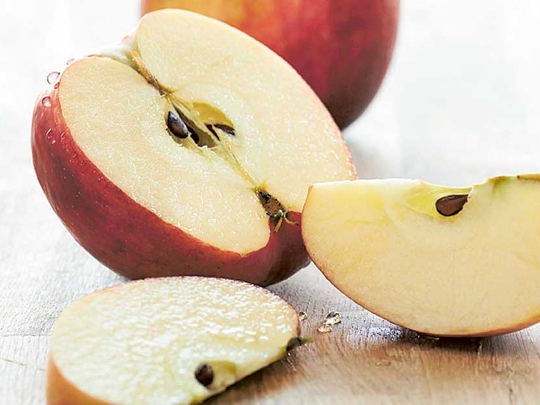
Dubai: Responding to social media rumours about apple seeds being toxic, the Food Safety Department of the Dubai Municipality on Monday said the toxicity of apple seeds is negligible and not a cause for concern.
While it is a fact that apple seeds, like many other fruits’ pips and stones, contain a small amount of cyanide, the municipality clarified that it takes a large quantity of apple seeds to poison a human being.
“Although Dubai Municipality believes that the circulated rumour doesn’t need a response because apple seeds are not eaten because of their bitter taste, the municipality cares to prove the truth, to give reliable scientific knowledge and would like to reassure the public that even if they eat the seeds, they won’t be affected except if they eat huge amounts of these seeds which is considered abnormal,” it said in a statement.
Emphasising that apples are one of the best fruits for health as mentioned in the age-old adage “an apple a day keeps the doctor away”, the civic body urged the public not to pay attention to rumours that discourage them from eating apples.
In a 2015 report, The Guardian reported that people are highly unlikely to eat enough apple seeds to poison them. The newspaper explained the risk of apple seeds.
Apple seeds contain a compound called amygdalin, which is a cyanide-and-sugar based molecule. If the seed is chewed or otherwise broken, human or animal enzymes come into contact with the amygdalin and effectively cut off the sugar part of the molecule. The remainder can then decompose to produce the poisonous gas hydrogen cyanide.
Cyanide toxicity is experienced by humans at doses of around 0.5—3.5mg per kilogram of body weight. A fatal dose for humans can be as low as 1.5 milligrams per kilogram of body weight.
The newspaper quoted a study which stated that the amygdalin content of apple seeds was found to be approximately 3 milligrams per gram of seeds (one seed is approximately 0.7gm).











